In December 1994, President Clinton hosted 33 democratically elected leaders from the Western Hemisphere at the Summit of the Americas in Miami in order to affirm commitments to democracy and develop a new architecture for ongoing relationships. In that spirit, Secretary of Defense William J. Perry followed up with a summit of defense representatives from all thirty-four democratically elected governments of our Hemisphere (Cuba excluded) in July 1995. I was lucky enough to attend this historic summit as the leader of a liaison team to the Trinidad and Tobago delegation. The following is my recollection of that three day summit.
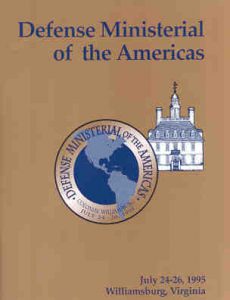
Secretary Perry selected Air Force Colonel Raymond C. Gagnon, Jr. as the Director of the task force organizing the event. It was planned for 3 days starting on July 24th, 1995. Colonel Gagnon had an air weapons controller background and apparently had the trust of the secretary to put this very important event together. Colonel Gagnon was given the Colonial Williamsburg location to stage the event. This is a very popular tourist destination which was closed to the public for three days in order to ensure tight security for the attendees.
One of the many problems to be solved was the various languages the attendees spoke: English, French, Spanish, and Portuguese. A call went out for bilingual military officers to act as liaisons to the attendees. My boss was bilingual in French and was picked for the Canadian delegation. After becoming involved with the planning, he recommended me for the Trinidad and Tobago delegation. Trinidad is an English speaking nation but a Spanish speaker was needed for possible interactions with the majority Spanish speaking delegates. I had graduated from the Defense Language Institute seven month Castilian Spanish course and had lived and worked for three years in Zaragoza, Spain. I had also spent time in Central America having been deployed to work military exercises several times.
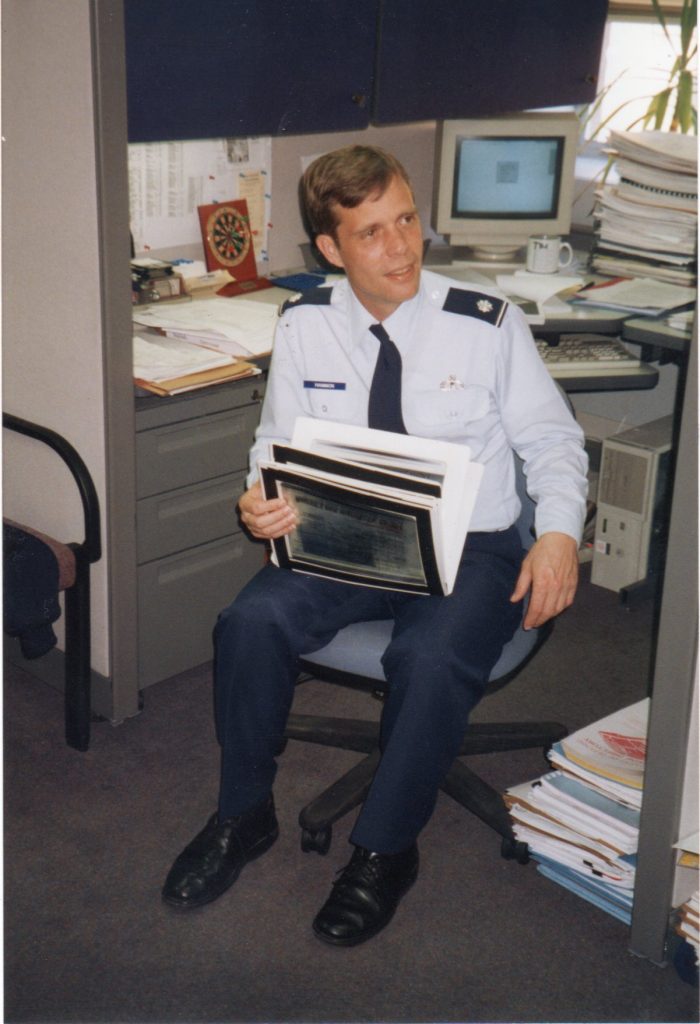
I was working in my office on Wednesday, July 19th when my boss called and told me to drive down to Williamsburg, Virginia that evening for in-processing and training the next day. After a two and a half hour drive from my home in Fairfax Station, Virginia, I arrived at Williamsburg and checked into the Williamsburg Lodge at nine o’clock that night. Since I was a team leader, I was given a private room.
The next day, I met my team which consisted of a marine major and an air force captain who were both bilingual in Spanish. We spent two days in-processing and receiving an overview of the summit. We also received training in protocol as well as what our duties would be. I learned my team would be assigned to the Trinidad and Tobago delegation which would consist of their foreign minister, an assistant, and a Trinidad army colonel. The Trinidad Defense Minister was not able to attend so the Foreign Minister, Mr. Gordon Draper, would be sent in his place. As part of the in-processing, we were issued special badges for the event. Security of the attendees was of paramount importance.
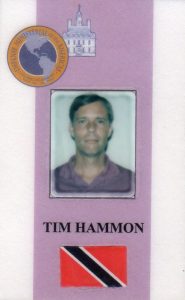
On July 22nd at 8:30 am, all 34 liaison teams boarded government buses bound for Langley Air Force Base near Virginia Beach, Virginia where we boarded a military transport bound for Miami International Airport. The arrival plan for all the delegates had them arrive in Miami and then be transported to Colonial Williamsburg as a group. We arrived at Miami International Airport at 12:45 pm and then shortly after checked in at the Miami Hilton located near the airport. The delegates would all arrive at different times the next day.
The next day, July 23rd, we were instructed that each team leader would travel to the airport in a limousine and personally meet our assigned delegation. A special line through customs was set up to quickly usher our VIPs through the airport. I met the limousine at the hotel and rode in the back to the airport by myself. I must admit that I was somewhat apprehensive on the ride there and hoped I would not be the cause of an international incident if something should go wrong.
I arrived at the airport and proceeded to the arrival gate of my delegation. These were the pre-911 days when you could still meet arriving parties at the gate. I connected with my delegation as they entered the airport and ushered them through customs. We picked up their baggage and proceeded to the limousine which now had a police escort provided by the city of Miami. We got in the limousine and were off immediately. The two car police escort turned on their lights and sirens and we were whisked through the city to the hotel. I found it to be quite an interesting experience. During the ride, I gave the group a security briefing and gave each member of the delegation a badge to be worn while in Colonial Williamsburg.
Arriving at the hotel, my team met the limousine and were introduced to the individuals they had been assigned as liaisons. The major would take care of the army colonel and the captain was matched with Mr. Draper’s assistant. I accompanied Mr. Draper to his room and helped him with his baggage. Once inside, we continued the conversation we had as we rode in the limousine and became acquainted with each other. At the end of the conversation, he asked me to call him Gordon. I explained I probably shouldn’t in public but I would be happy to in private. I realized I was lucky to have been matched with an important but approachable man. I liked him right away.
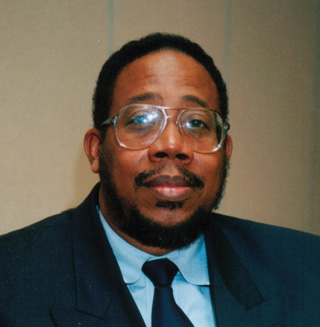
We left the Miami Hilton at 10:00 am the next day on a government contracted bus and boarded an Air Force transport at the Miami airport for the flight back to Langley Air Force Base. We arrived at 12:45 pm and spent a few hours at Langley and then proceeded to Colonial Williamsburg. Along with the summit’s support staff, I checked in to the Williamsburg Lodge while the delegates stayed at the Willimasburg Inn.
My job was to accompany Gordon to most events during the next two days of the summit to help him with interactions with other delegates if needed. I was issued a hand held radio which we called a “brick” in the military. In 1995, cell phones were still essentially a novelty. The brick would give me instant contact with the summit’s support headquarters should any problems arise.
At the end of the first day, a catered dinner in a large tent set up on the grounds of the Governor’s Palace was planned. I met the Trinidad delegation there during a cocktail hour before the dinner. The delegation chose to stay together in light conversation. It was a pleasant summer evening and the mood was light. After a while, the protocol people began to encourage the delegations to find their tables under the tent. After a short while, most the people in attendance had found their seats, but my three delegates continued to remain outside engaged in light conversation.
The protocol people began to give me visual signals indicating my delegation needed to move to the tent. I tried succinctly to get them to move. Gordon apparently realized my discomfort and offered, “We are going to lime just a bit longer” (In Trinidad, liming is a slang term meaning the art of doing nothing). After seeing the quizzical look on my face, he offered an explanation, “a man in Trinidad was once sent by his wife to get a chicken for dinner. He returned the next day slightly drunk and instead of giving his wife a chicken, he gave her a lime instead.” Much to the relief of the protocol people, my delegation eventually took their seats under the tent and we enjoyed a pleasant dinner.
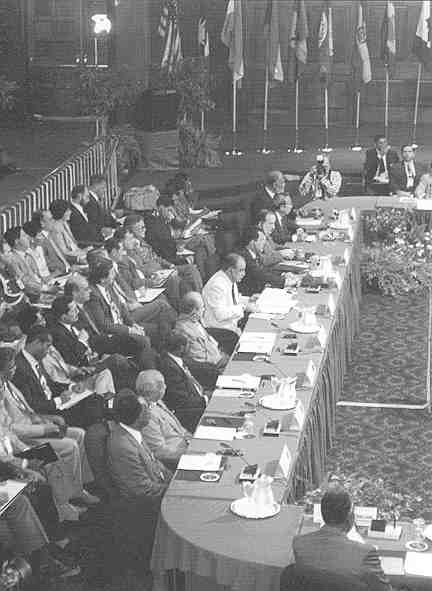
During the summit, only two minor problems arose with the delegation. The first concerned the Trinidad army colonel. He did not agree with the arrangements the Trinidad government had made for the summit. He felt that he, as the delegation’s military representative, should be its head. He asked that I make a request to have him be recognized as the lead. I passed his request to the protocol people and they contacted the Trinidad government. Trinidad replied there would be no changes and I informed the colonel who accepted the answer.
The next problem concerned security. I had told the members of the delegation that they had to wear their badges at all times while at the summit. One afternoon, one of the Trinidad delegation members decided to take a walk around the grounds without his badge and was challenged by security. They tried to reach me on my brick but I must have been out of range and never got the call. In the end, security identified him and let him go on his way.
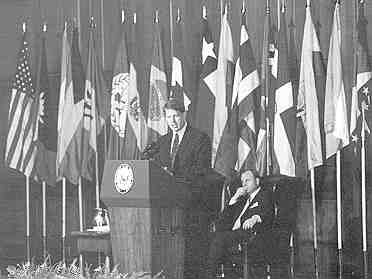
I accompanied Gordon to most events during the summit. On the second evening of the summit, we attended a cocktail party in the Governor’s Palace where Secretary Perry was in attendance. Gordon indicated he wanted to meet the secretary so we walked over to him and I found myself introducing the Foreign Minister of Trinidad to the US Secretary of Defense. As we approached the Secretary, I was reviewing proper protocol procedures in my mind. I was nervous but I managed to get through the introductions without making a mistake. This definitely was not my area of expertise.
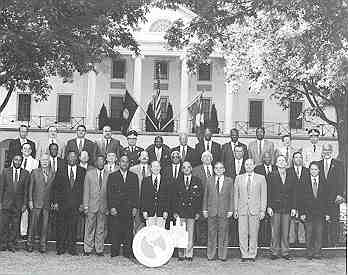
The summit ended on July 26th and we left Colonial Williamsburg at 2:00 pm for the bus ride back to Langley. Upon arriving at Langley, we immediately boarded an Air Force transport and flew back to Miami. We checked back into the Miami Hilton at 5:30 pm that evening. Later that evening, we socialized in a suite reserved for us on the top floor of the Hilton. I spent a pleasant evening with the delegation in conversation and drinks. Gordon was a pleasant and warm man and we enjoyed a pleasant evening together.
The next morning, July 27th, the delegation checked out of the Hilton and Gordon and I said goodbye. He was going to spend a few days in Miami as a tourist. I breathed a sigh of relief as this special assignment ended without any serious problems arising.
At 1:30 that afternoon, I flew back to Langley and was bused back to Colonial Williamsburg to reunite with my vehicle. I arrived back home at Fairfax Station, Virginia at 8:00 pm and went back to work in the Pentagon the next day. A few months later, my contribution to the summit was recognized by Colonel Gagnon.
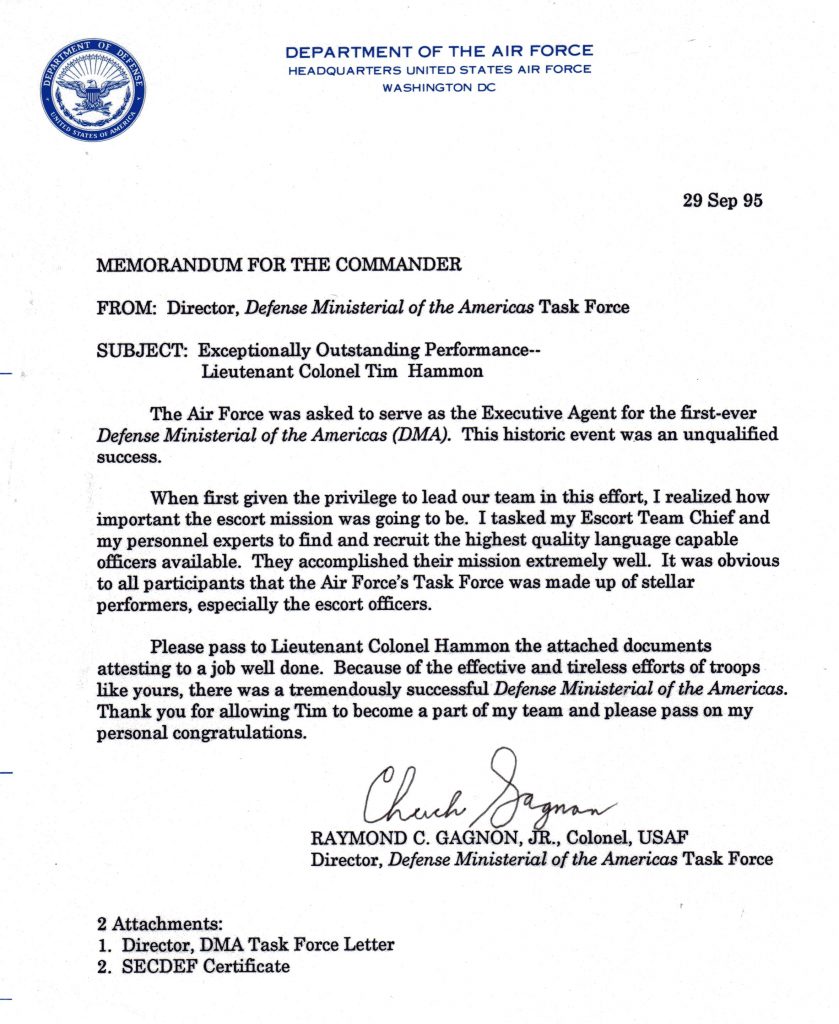
Final Thoughts:
Sadly, Gordon Draper died of an aneurysm (sudden bleeding in the layer between the skull and the brain) in St. Mary’s Hospital in London, England in August of 2004. Friday 13th August edition of the Trinidad and Tobago Newsday.
The Defense Ministerial became a biennial event. The 2nd Ministerial was held two years later in Argentina. Coincidentally, the 12th one was held in Port of Spain, Trinidad and Tobago in 2016. The 13th is to be held in Mexico this year, 2018.
